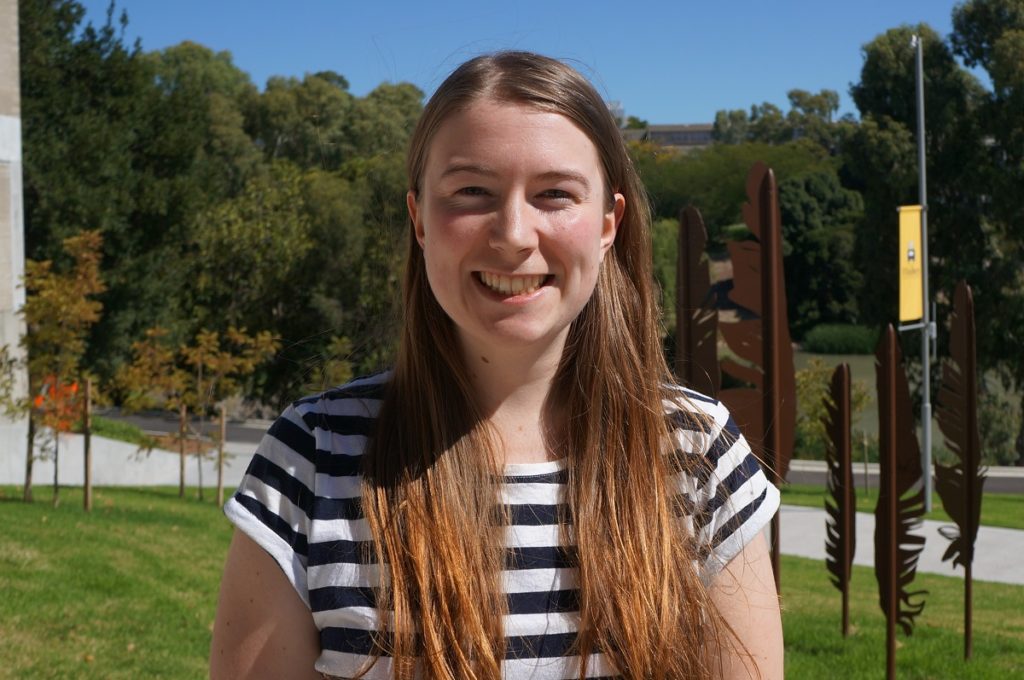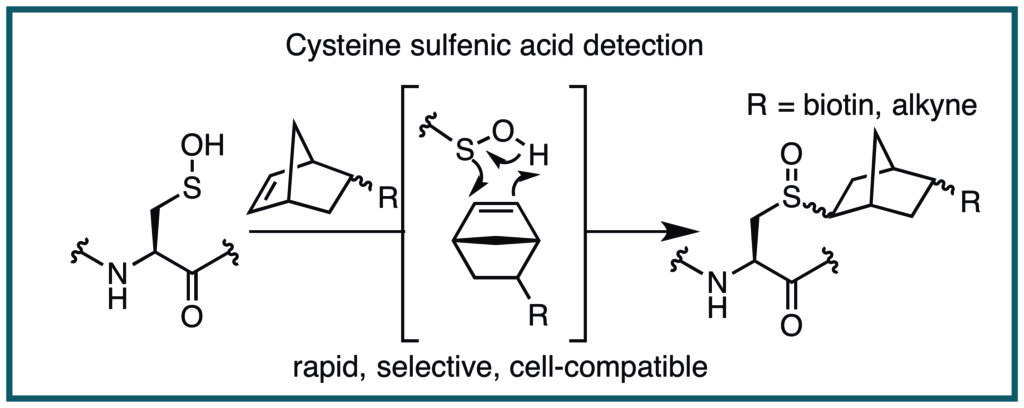
Researchers at Flinders University’s Institute for NanoScale Science and Technology in collaboration with the University of Adelaide and the University of Cambridge have invented a new tool that detects a protein modification formed during oxidative stress–a problem associated with heart disease, diabetes, Alzheimer’s disease and other maladies. The protein modification, known as cysteine sulfenic acid, is poorly understood and difficult to detect using traditional methods. The study, led by PhD student Lisa Alcock and supervisor Dr Justin Chalker, addressed this need by inventing a molecule that reacts rapidly and specifically with the cysteine sulfenic acid. The key discovery was to use a “spring loaded” derivative of a molecule called norbornene. The team demonstrated this molecule is faster-acting and more selective than other methods of detection and it even works in complex protein mixtures and living cells.

On the significance of the study, Dr Chalker comments that “The ability to map protein oxidation is critical in understanding signalling pathways and biomarkers of disease. This tool will help labs around the world in their studies of oxidative stress and the many diseases associated with this condition. Understanding the fundamental biochemistry of these diseases is the first step in developing future medical treatments.”
“From a chemistry perspective, this is a remarkable achievement in selectivity: we can treat cells with our compound and the compound reacts specifically with cysteine sulfenic acid. It is like finding a needle in a haystack.”
Flinders University PhD student Lisa Alcock, the lead author on the study, completed key experiments in this research at Adelaide University in collaboration with A/Prof Tara Pukala and later at Cambridge University in the lab of Dr Gonçalo Bernardes as part of her Endeavour Postgraduate Research Fellowship. Dr Bernardes was a Flinders Visiting International Research Fellow in 2017 and a long-standing collaborator with the Chalker Laboratory.
Other contributors to the study are Dr. Bruno Oliveira of the Institute for Molecular Medicine in Lisbon, Dr Michael Deery of the Cambridge Centre for Proteomics and A/Prof Michael Perkins of Flinders University.
The paper was published in the journal ACS Chemical Biology
Link to paper: https://pubs.acs.org/doi/10.1021/acschembio.8b01104

